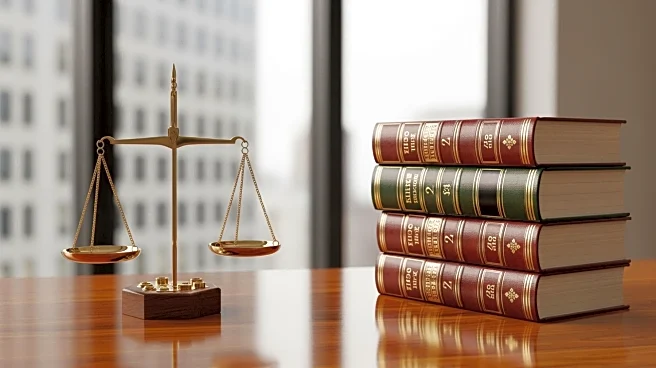What's Happening?
President Donald Trump has reiterated claims that he predicted the threat posed by Osama bin Laden in his book 'The America We Deserve,' published in January 2000. During a speech at the 250th anniversary celebration of the U.S. Navy in Norfolk, Virginia, Trump stated that he had warned about bin Laden a year before the 9/11 attacks. However, the book only makes a passing reference to bin Laden without predicting his involvement in a major attack. Trump's comments have sparked criticism and mockery on social media, with some pointing out that the claims have been previously debunked.
Why It's Important?
Trump's remarks highlight ongoing debates about his credibility and memory, particularly concerning historical events. The president's assertion of foresight into the bin Laden threat may be seen as an attempt to bolster his image as a prescient leader. However, the backlash and fact-checking from critics and media outlets could impact public trust and perception of his statements. This incident also underscores the broader issue of political figures' use of historical narratives to shape public opinion and legacy.
What's Next?
The controversy surrounding Trump's comments may lead to further scrutiny of his past statements and claims, particularly those related to national security and historical events. As the public and media continue to analyze his remarks, there may be increased focus on his health and mental fitness, especially given recent concerns about his physical condition. The ongoing debate could influence future political discourse and the evaluation of presidential rhetoric.
Beyond the Headlines
The incident raises questions about the ethical implications of political leaders revising historical narratives for personal or political gain. It also highlights the role of media and fact-checkers in holding public figures accountable for their statements. The long-term impact on public trust in political communication and historical accuracy remains a critical consideration.










